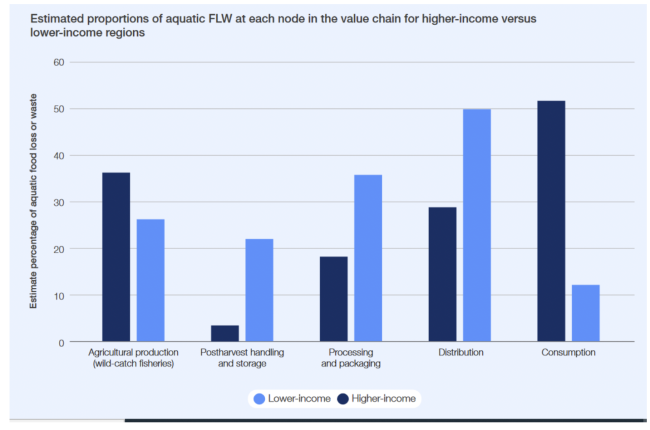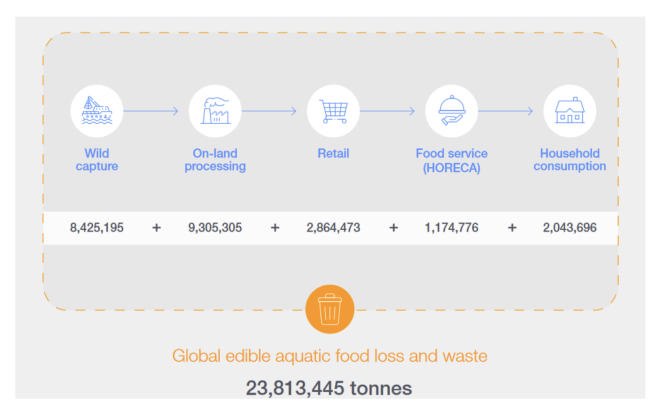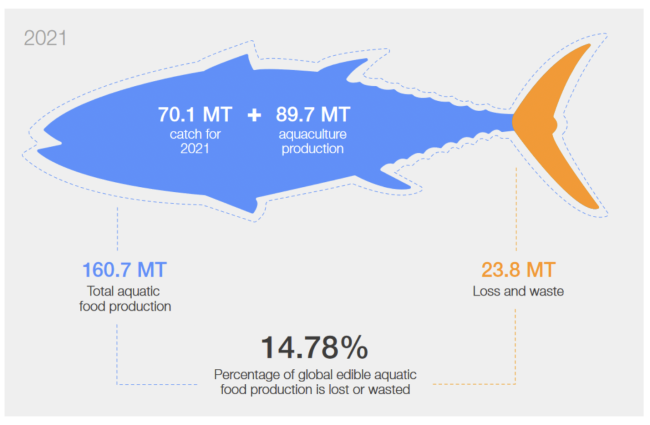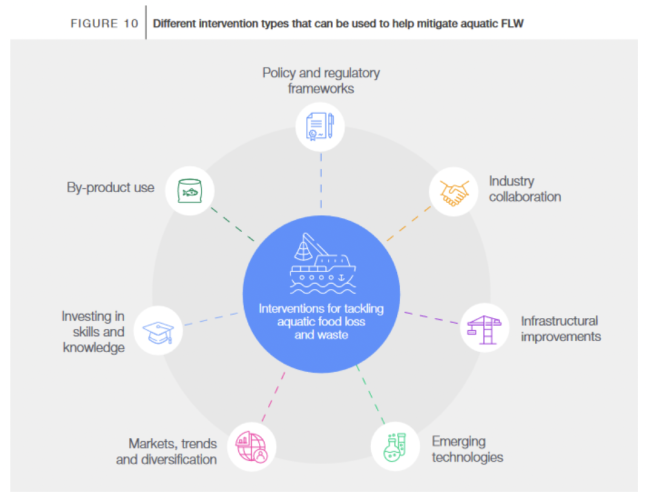Highlights:
Aquatic foods play a critical role in global food and nutrition security. With projections indicating a continued rise in their consumption, aquatic food loss and waste (FLW) is a growing global concern. While the United Nations Food and Agriculture Organization (FAO) 2011 estimate indicated that 35% of aquatic food directed to human consumption was lost or wasted globally, such estimates are outdated and inadequately aggregated, making it challenging to assess more recent FLW along the aquatic food value chains.
This paper provides updated estimates of global aquatic FLW across different nodes of the value chain, offering a comprehensive breakdown across species groups, product types and continents.
The analysis reveals global edible aquatic FLW totalled approximately 23.8 million tonnes (MT) in 2021, equating to 14.8% of total aquatic food produced that year.
Globally, processing on land and production of wild-capture fisheries (discards) accounted for 39.08% and 35.38% of aquatic FLW, respectively, the largest proportions generated in 2021. The analysis also highlights specific areas of concern regarding aquatic FLW, emphasizing the urgent need for targeted interventions, particularly on demersal fishes and frozen products, most notably during production and processing in Asia and Europe.





Reducing aquatic FLW is crucial for enhancing long-term food system resilience. While the magnitude of aquatic FLW is significant, there are numerous actionable strategies for FLW mitigation that have already been adopted, driven by technological innovation and multi-stakeholder collaboration.

Using insights from the analysis and research, this paper outlines targeted calls to action for distinct stakeholder groups comprising policy-makers, industry and civil society.
Policy-makers:
Strategic policies must be enacted to incentivize adjustments in market demand towards species and products associated with lower levels of loss. This must happen concurrently with the expansion of product portfolios available to consumers.
Policy-makers must create an environment that is conducive to innovative businesses and initiatives in loss and waste management and by-product use.
Policy-makers must also invest in robust data collection mechanisms and encourage interdisciplinary collaboration to provide the necessary foundation for evidence-based decision-making and effective loss and waste reduction strategies.
Educational programmes and initiatives must be supported at broad regional scales to disseminate information on best practices and improve by-product use, empowering stakeholders to bridge skills gaps and enhance efficiency along the aquatic foods value chain to adopt such practices.
| Year of publication | |
| Geographic coverage | Global |
| Originally published | 15 Apr 2024 |
| Related organisation(s) | WEF - World Economic Forum |
| Knowledge service | Metadata | Global Food and Nutrition Security | Fisheries and aquaculture and food and nutrition securitySustainable Food Systems | Food systems transformationValue chain analysis |
| Digital Europa Thesaurus (DET) | food wasteMonitoringpolicymaking |
